A half-century of medical curricula has overlooked one of human physiology’s master regulators—the endocannabinoid system (ECS). But the conversation is shifting. In faculty rooms across the world, one question is changing the temperature: “Shouldn’t we teach the ECS?” Educational omissions translate directly into gaps in patient care. Closing both is imperative. Every revolution…
Category: Endocannabinoid System (ECS)
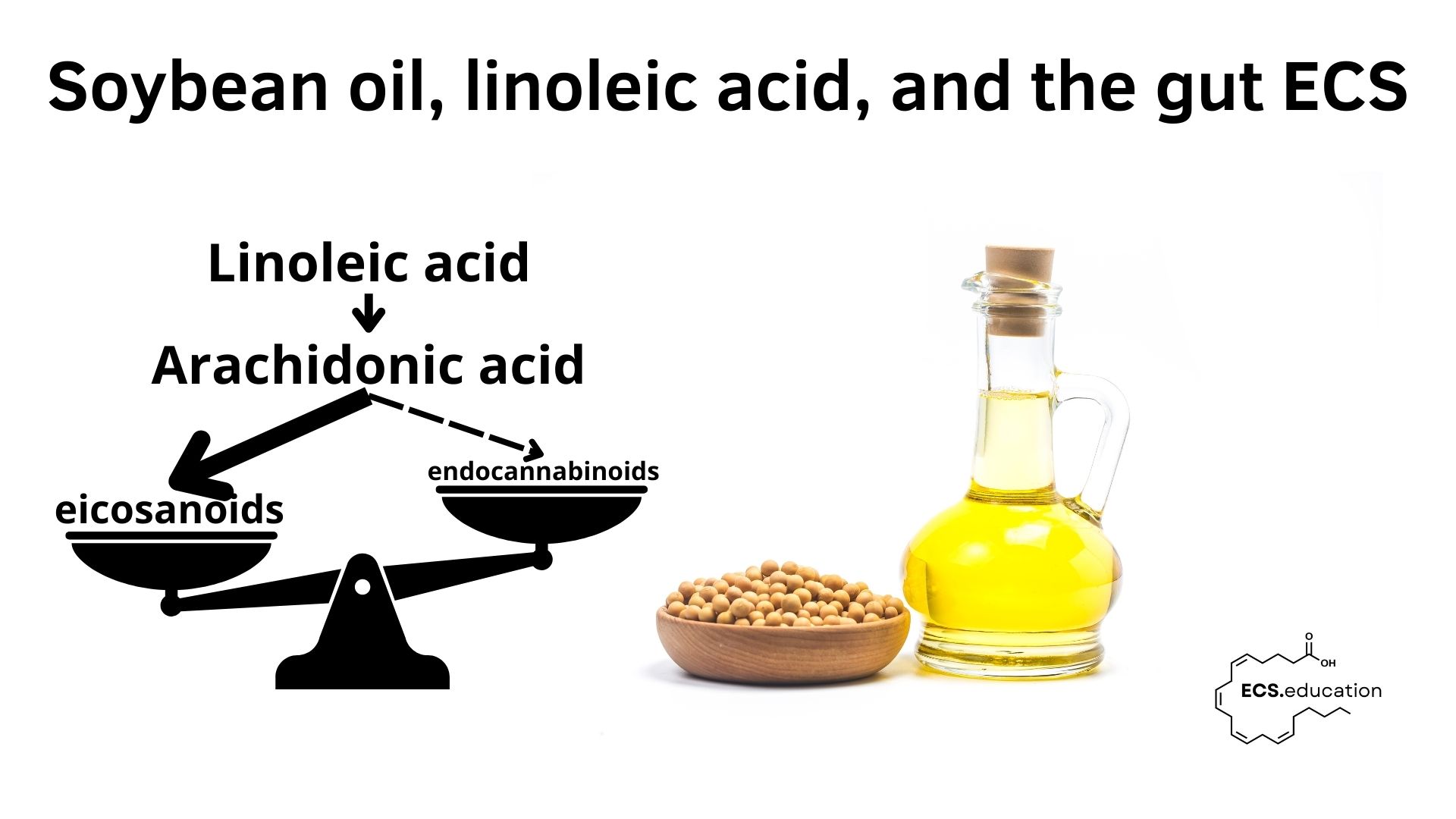
Soybean oil, linoleic acid, and the gut ECS
A recent study titled ‘Diet high in linoleic acid dysregulates the intestinal endocannabinoid system and increases susceptibility to colitis in Mice‘ shows that eating a lot of linoleic acid from soybean oil changes lipid chemistry in the gut in a way that weakens the protective endocannabinoid system and strengthens inflammatory…
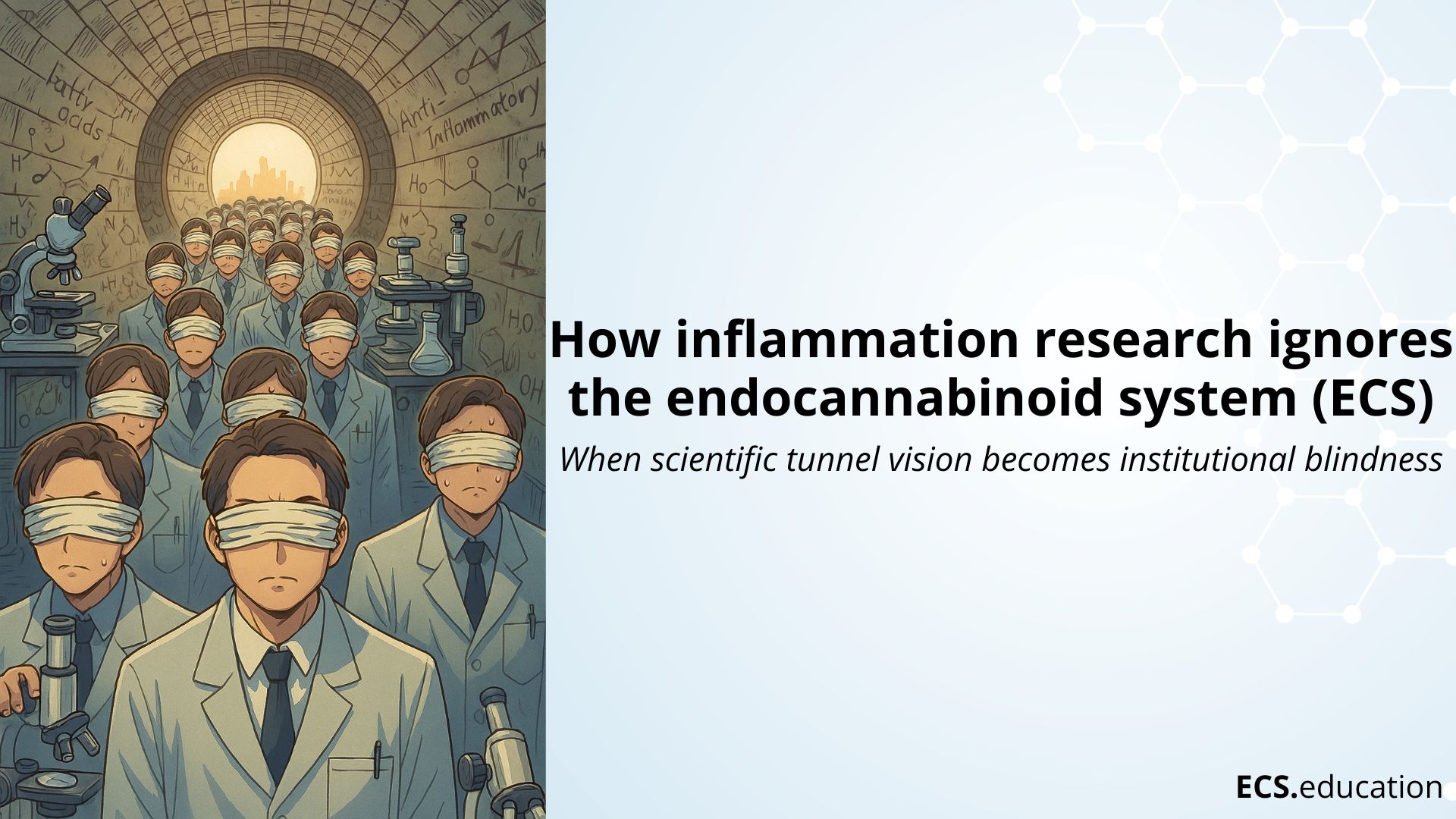
How Scientific Tunnel Vision in Inflammation Research Ignores the Endocannabinoid System (ECS)
When scientific tunnel vision becomes institutional blindness Lessons from history’s scientific blind spots Science has a troubling habit of missing the forest for the trees. For decades, gastroenterologists dismissed the idea that bacteria could cause stomach ulcers—until Barry Marshall proved Helicobacter pylori was the culprit by infecting himself. Geologists ridiculed…
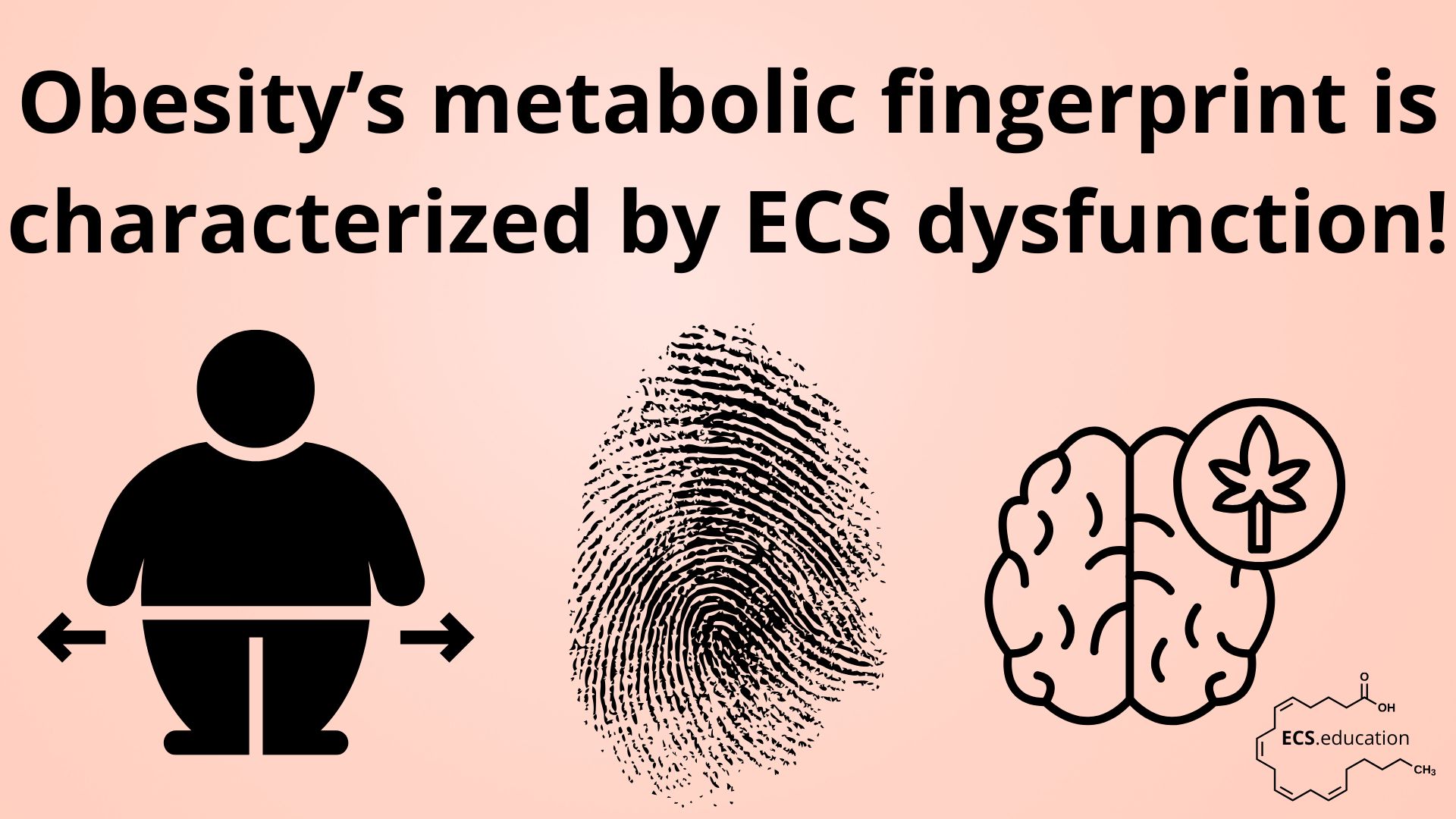
Obesity’s metabolic fingerprint is characterised by ECS Dysfunction!
Obesity isn’t just about extra weight—it imprints a unique metabolic fingerprint deep within your body. New research reveals that this signature is marked by endocannabinoid system (ECS) dysfunction, driven by dietary fat balance and energy surplus. Learn how what you eat tunes your ECS, shapes your health risks, and why fixing the “input side” of nutrition could help fade the metabolic fingerprint of obesity.
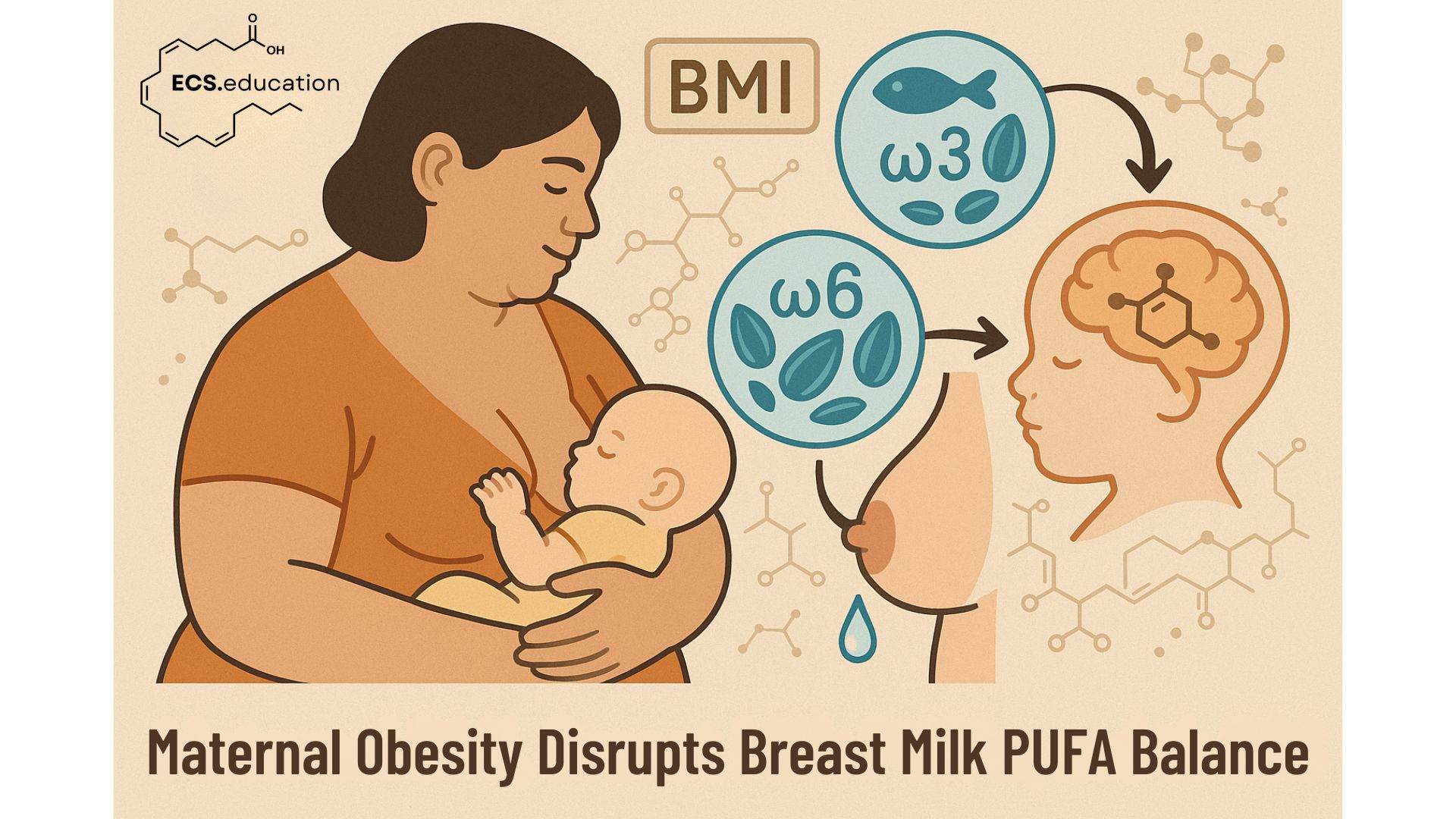
Maternal Obesity Disrupts Breast Milk PUFA Balance: New Insights into ECS Programming for Infants
Let’s dive right in. In my earlier posts on ECS.education, we’ve talked about how maternal adiposity shapes breast milk’s endocannabinoid system (ECS) and influences infant health. The May 23 piece on ‘The Adiposity Filter: How Maternal Body Fat Reshapes Milk PUFAs for Your Baby’s ECS‘ highlighted shifts in endocannabinoid profiles…
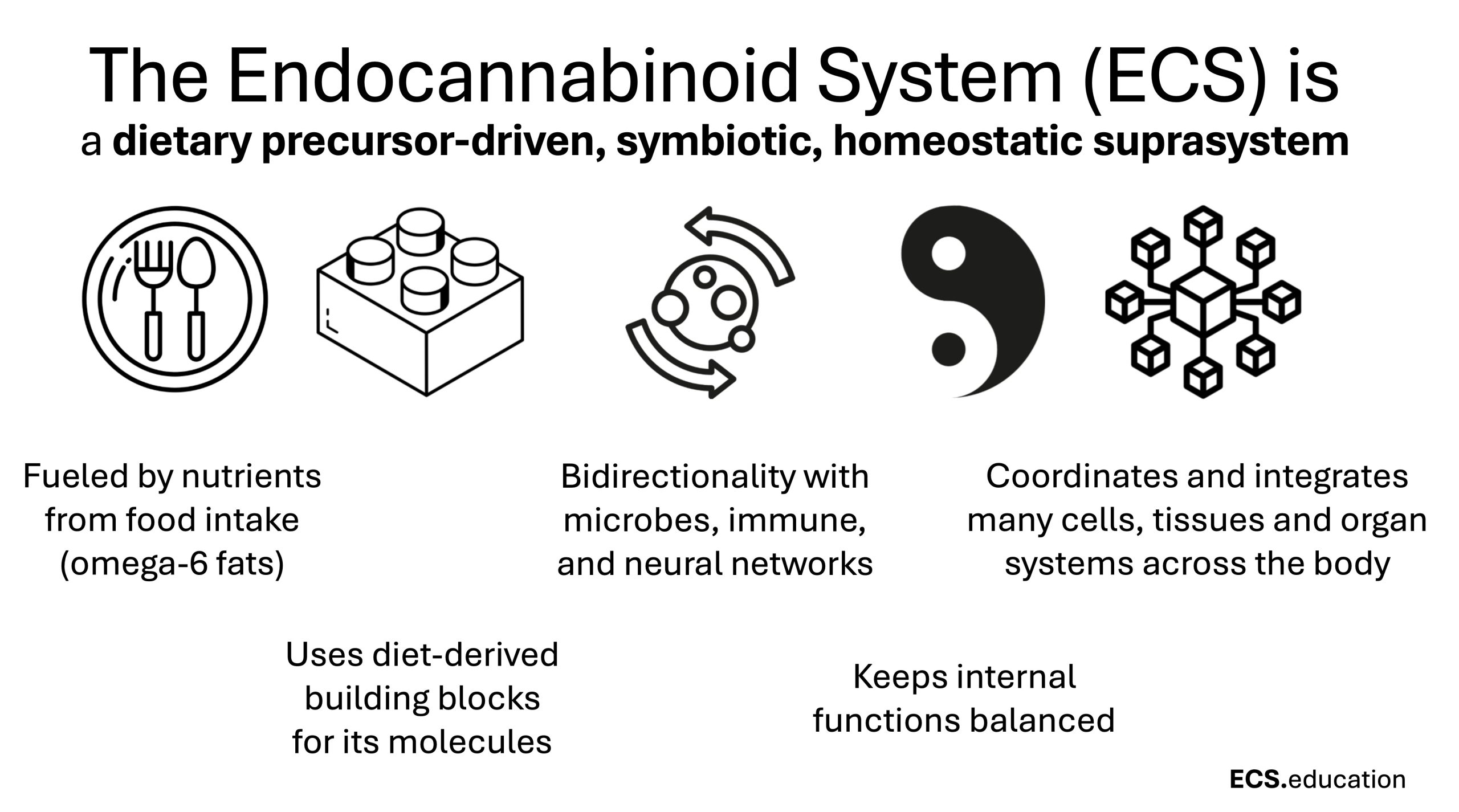
The Endocannabinoid System: Dietary Precursor-Driven ECS & Medical Education Gap
The Misunderstood Master Regulator The endocannabinoid system (ECS) is often considered the “cannabis system,” but this label ignores its true—and far broader and more important—role in holistic health. Instead of being defined by external substances, the ECS is a dietary precursor-driven, symbiotic, homeostatic suprasystem: a dynamic physiological network that maintains body-wide…

Beyond the Buzz: Cannabis Heart Risks vs. Diet-Driven ECS Overload
Introduction: Beyond the Buzz – A Flawed Focus on Cannabis Recent headlines have lit up with warnings about cannabis and heart health, fueled by a systematic review showing links to increased risks of strokes, heart attacks, and cardiovascular death. It’s easy to get caught up in the alarm. After all, who doesn’t want to protect their ticker? But here’s where our reasoning goes off track:…

Obesity Rewires Your Endocannabinoid System (ECS): How Fat, Liver, Heart & Brain Are Transformed
Obesity is more than excess fat—it’s a disorder of endocannabinoid system (ECS) dysfunction. Explore how obesity rewires CB1 signaling in fat, liver, heart, and brain, driving chronic disease.
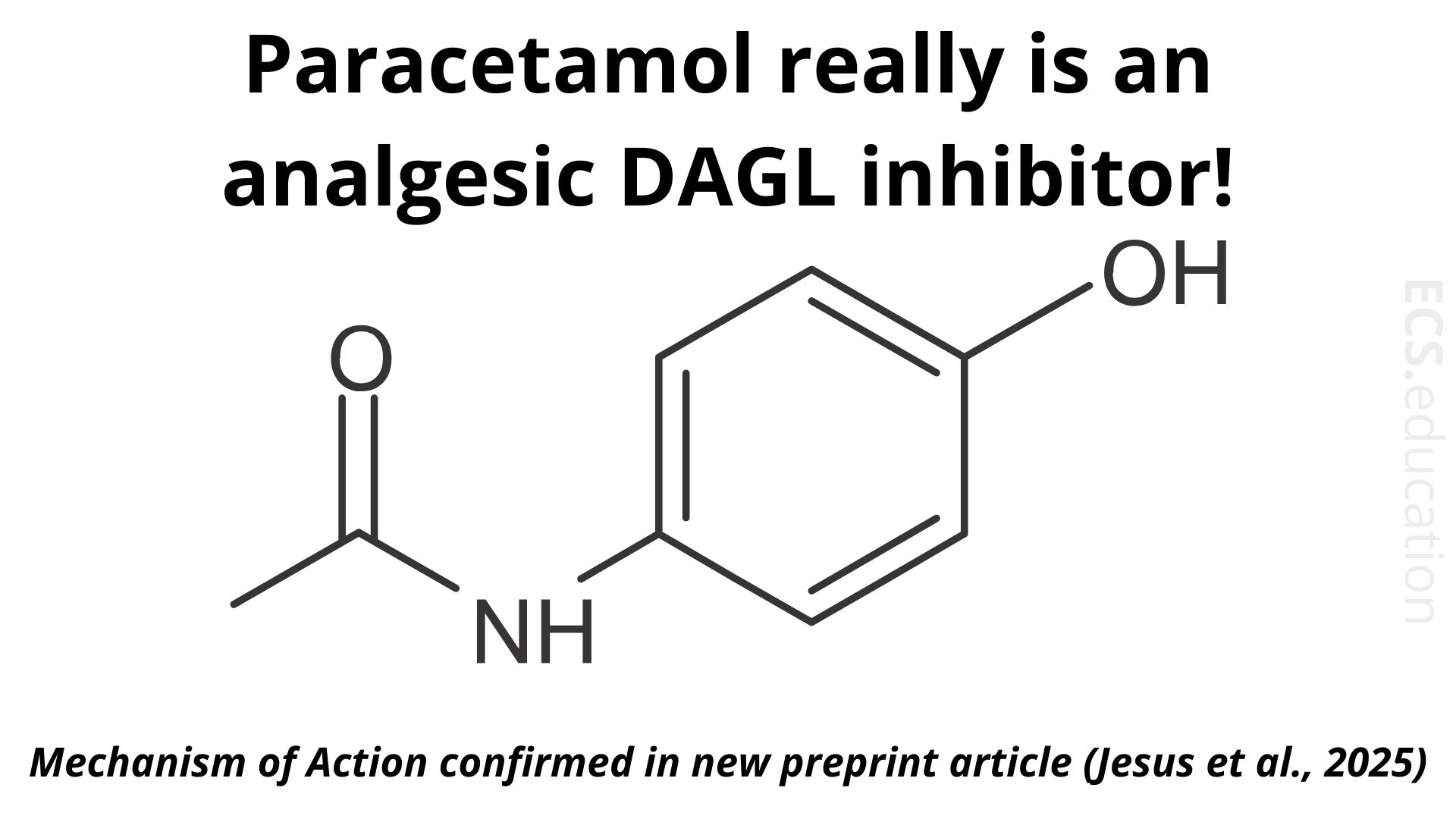
Paracetamol Confirmed as a Direct Analgesic DAGL Inhibitor: New Preprint Evidence
Important Note: This blog post discusses findings from a recent scientific preprint, meaning the research has not yet been formally peer-reviewed. Preprints allow for rapid dissemination of findings, but results should be interpreted cautiously until confirmed by peer-reviewed publication. Recently, we reported on a surprising new way that paracetamol (also known…

The Agmatine-ECS-ASD Connection: New Hope for ASD by Boosting 2-AG and Calming the Brain
Explore groundbreaking research on agmatine’s connection to the endocannabinoid system (ECS) in Autism (ASD). Discover how it may boost 2-AG, calm brain inflammation, and offer new hope for understanding and potentially supporting ASD.

